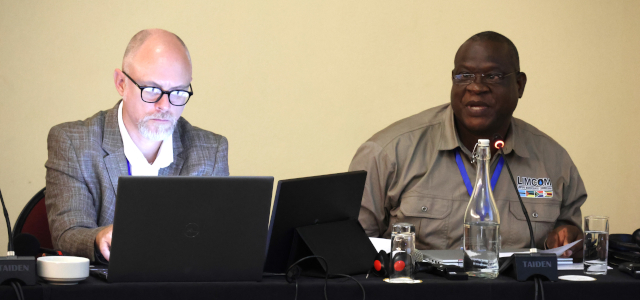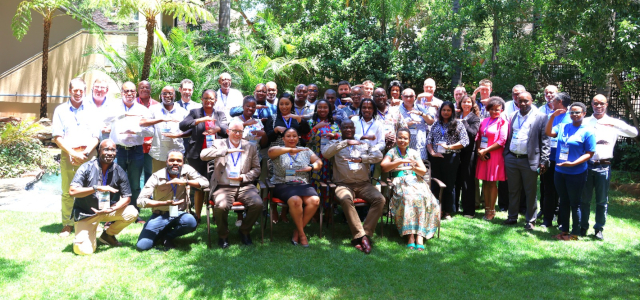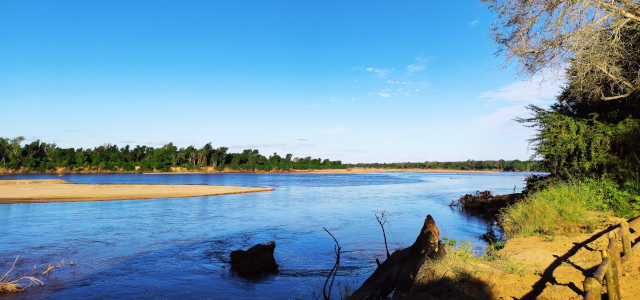“The Limpopo River Basin belongs to us and none but ourselves should be the champions of development in the basin,” Manatsa Ruzengwe, representing the Government of Zimbabwe as Chair of LIMCOM said in his welcome address.
He said it was, therefore, important for all stakeholders and technical partners to “pull in one direction” and align their work plans to ensure that the project benefits the people living in the basin.
His counterparts from the Governments of Botswana, Mozambique and South Africa shared the same sentiments, saying the success of the project is vital for the growth of LIMCOM Member States since the basin, which has an estimated population of about 18 million people and a catchment area of about 408,000 km² supports various socio-economic activities in the four countries that share the river.
Cognisant of this, LIMCOM Executive Secretary, Sergio Sitoe said the project management unit organized this integration workshop so that technical partners understand how their individual workstreams contribute to the collective project and the impact that the project is supposed to make in the Limpopo.

Mr Sergio Sitoe ( right), Executive Secretary, LIMCOM delivers his opening remakrs at the Integration Workshop. Alongsidehim is Dr Eddie Riddell , UNDP-GEF Limpopo project coordinator
At the workshop, the various technical partners assigned to lead different studies and interventions such as the development of the Transboundary Diagnostic Analysis (TDA), and Strategic Action Program (SAP), as well as an Environmental Flows (Eflows) assessment, and implementation of Sustainable Land Management (SLM) activities agreed to align their work plans to make sure that the project is a success.
The technical partners also identified key touchpoints of information flows, timelines, and data requirements, as well as synergies and integration points with the other workstreams that contribute to the TDA and Strategic Action Program (SAP) development process.

Group photo for the Integration Workshop for the UNDP-GEF Limpopo project
The UNDP as the implementing entity of the project pledged continued support to the project. “We want to share our commitment to building a sustainable and prosperous future for the Limpopo River Basin and its inhabitants,” said Deshni Pillay, the Nature, Climate and Energy Portfolio Manager at UNDP.
Dr Loreen Katiyo, the Transboundary Water Governance and Environmental Specialist at the GWPSA said as the executing agency, “GWPSA is committed to working with Member States, the LIMCOM Secretariat and all partners to achieve the goals of the project.”
The main aim of the UNDP-GEF Limpopo project is to achieve integrated, cross-sectoral, ecosystem-based management of the Limpopo River to uplift the living standards of the basin’s population and conserve the basin’s resources and ecosystem services.
The UNDP, together with GWPSA, is supporting the project, funded by the Global Environment Facility (GEF). As the GEF implementing entity, the UNDP provides overall oversight of the project with GWPSA being the executing agency, while LIMCOM is the focal custodian of the project implementation.
